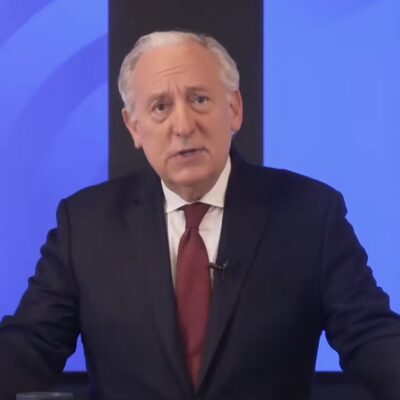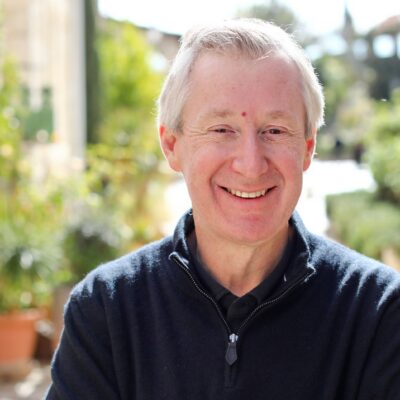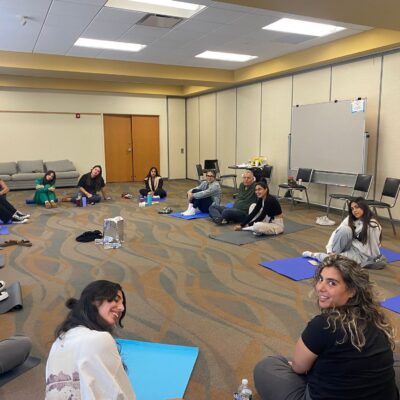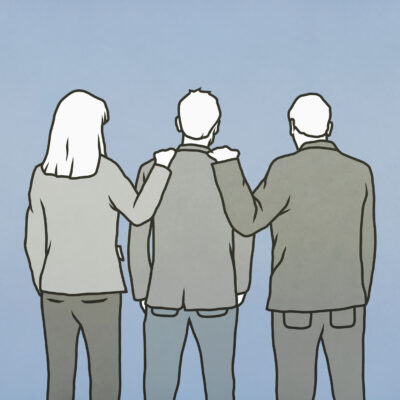How the COVID-19 Pandemic is Impacting Jews of Color

By Chris Harrison
The COVID-19 crisis has impacted nearly everyone across the globe, and the Jewish community is no exception. With so many unanswered questions about when we can return to normal life (and if that’s even possible) both within and outside of our Jewish communities, it’s easy for so many of us to feel scared, alone, and even angry.
Those of us who are Jews of Color – comprising approximately 12 percent of the U.S. Jewish community – feel a particular sense of isolation and anxiety.
“As a Black person, I am really worried,” says Jordan Berg Powers, director of Boston-based, statewide coalition Mass Alliance. He developed asthma after being chronically exposed to toxic air, and despite being a vegetarian for 26 years, he deals with high blood pressure, which studies show can be caused by genetics and the effects of systemic racism.
Because every trip to the doctor is a battle to get the same level of care that his wife, who is white, receives, Berg Powers is understandably worried that COVID-19 will kill him. In fact, according to state and local data by the Associated Press, Black Americans thus far constitute nearly one-third of all COVID-19 deaths in the U.S.
“This virus has perfectly illustrated how racist, misogynist, and classist this country is; the ways in which we enact inequality without thinking is endangering and killing people,” he says. “Black and Brown folks are told to homeschool our kids, but if you’re a cashier, a bus driver, or a line cook, who looks after your kids?
“Do you endanger your parents by asking them? Do you ask your childcare provider to illegally open up, endangering them or you? Do you leave them at home and hope the 10-year-old can manage the 6-year-old?”
The feeling of social disconnection can also feel heightened for Jews of Color, in particular.
Anjelica Ruiz, a Latina-Filipina Jew and director of libraries and archives at Temple Emanu-El in Dallas, TX, says that while she is proud of everything Reform congregations are doing to support one another, she and other Jews of Color are often left out of the equation.
“In my experience, many of us do not live in the ‘Jewish’ areas of our town or city,” she says. “I’ve heard heartwarming stories about people dropping off challah or other goods at each other’s homes, but that has not been the case for me since I live further south than everyone else.”
“It’s such a small thing, but in a time where so many of us are physically separated from the rest of the Jewish community, it hurts,” says Ruiz, whose mother is an essential worker. “I know it’s unintentional, but not being taken into consideration just further complicates the relationships we have with the communities we love so much.”
The pandemic has also been the catalyst for acts of racism directed toward people of Color by individuals who harbor the incorrect and racist belief that people of Asian descent are responsible for the spread of the disease. According to the Anti-Defamation League, there have been at least 90 reported instances of anti-Asian harassment in the U.S. since January 2020.
Ruiz says she was the target of anti-Asian verbal assault, and Becky Jaye, an Asian Jewish rabbinical student at Hebrew Union College-Jewish Institute of Religion, says she has endured similar attacks.
“This happened on the subway, at the grocery store, and once while I was walking home alone on the street late at night. These people knew nothing about me except the way I looked, and that alone was a provocation and invitation for them to shame me,” Jaye recalls.
“As a Jew, I just cannot bring myself to believe that this is the way God wants us to treat each other,” she says, “and I cling to our values and tradition to provide even a small sense of comfort in the face of this fear.”
Yolanda Savage-Narva, executive director of Operation Understanding D.C., also says she is leaning on her Judaism during these trying times.
“As a Black Jew, this pandemic has unfortunately reminded me of the systemic racism, oppression, and health inequities that have permeated our society for centuries and continue to plague Black and Brown communities,” she says. “On the other hand, I’ve been able to rely heavily on my faith to help me make sense of what is happening; to lead and guide others; to find ways to create and innovate to make this unpredictable time in our lives bearable.”
Indeed, our Reform Jewish values and traditions can empower us all to be a light amid all of this darkness. Jaye finds particular inspiration in the belief “Kol Yisrael arevim zeh bazeh,” or “All of Israel are responsible for one another.” (Talmud, Shavuot 39a)
“Right now, we are tasked to be responsible to one another on a global scale; to staying home to ensure the safety of a neighbor or a complete stranger who might be more susceptible to contract COVID-19 than we,” Jaye says. “By taking the needs of others into consideration even at a basic level, we beautifully, radically manifest love.”
Berg Powers’ message to Reform Jews is to reflect, to take responsibility, and to act in the best interest of those most marginalized by this pandemic.
“We must collectively take a moment to sit with the disastrous effects of systemic inequality; to allow our souls time to be uncomfortable, especially if we are sitting comfortably on our couches,” he implores the Reform Jewish community.
“We must all contemplate our complicity in the spreading of this human tragedy. It can be easy to blame others, but we must look inward and ask, ‘What have we done to make tragedy even more tragic? What can we do to repair to make it more whole, now and in the future?’”
Chris Harrison is the writer and editor for audacious hospitality at the Union for Reform Judaism and a fellow in its 2018 JewV’Nation Fellowship’s Jews of Color Leadership Cohort. He earned his B.A. in English/creative writing and film studies at Miami University and his Certificate in Jewish Leadership through Spertus Institute and Northwestern University.
To learn more about how COVID-19 is impacting Jews of Color and Multiracial Jewish families, as well as how the Reform Jewish community can better commit to racial diversity, equity, and inclusion work, read Deitra Reiser’s blog post “Centering Racial Justice and Jews of Color During the COVID-19 Pandemic” and watch the accompanying webinar presented and hosted, in part, by the Jews of Color Field Building Initiative.
Originally published on Reform Judaism.org; reprinted with permission.

 Add EJP on Google
Add EJP on Google









